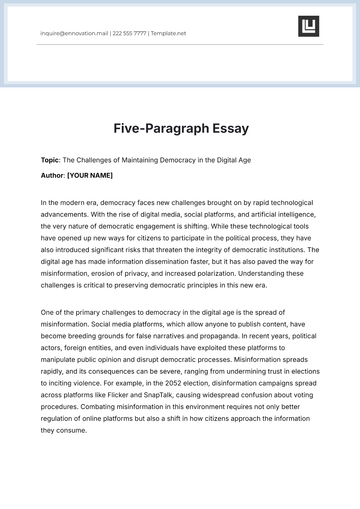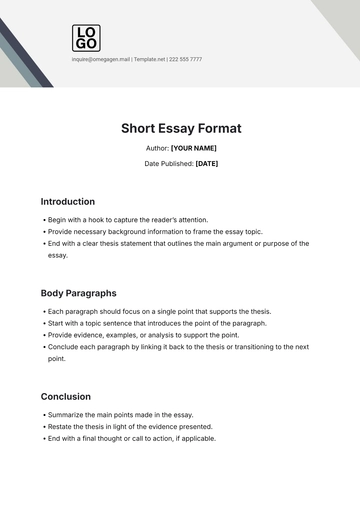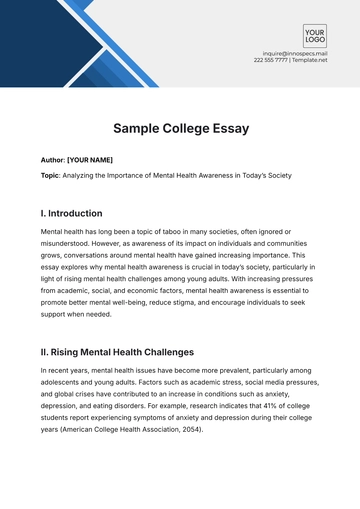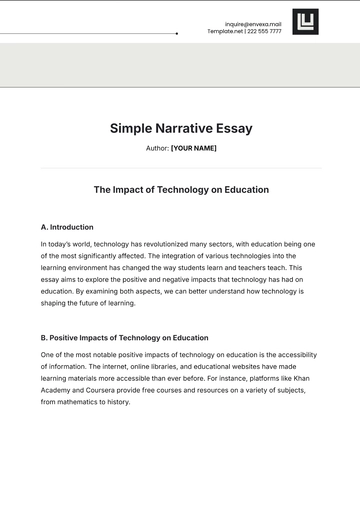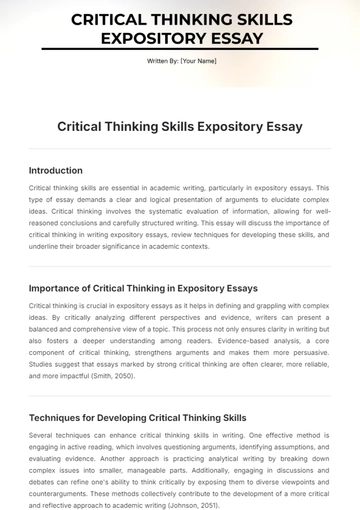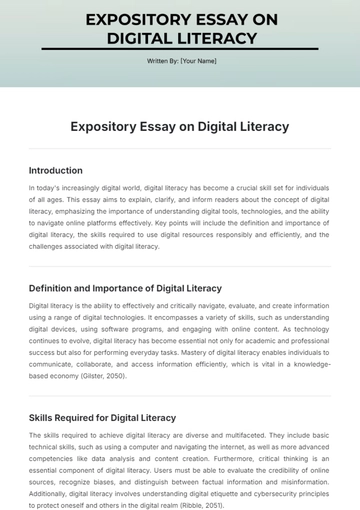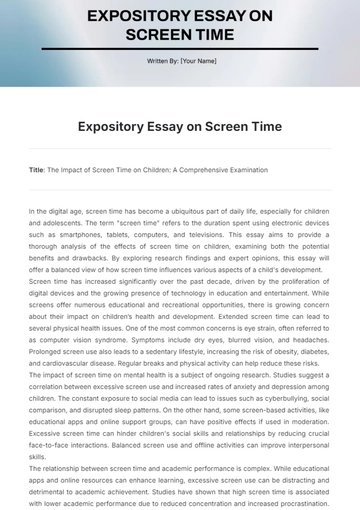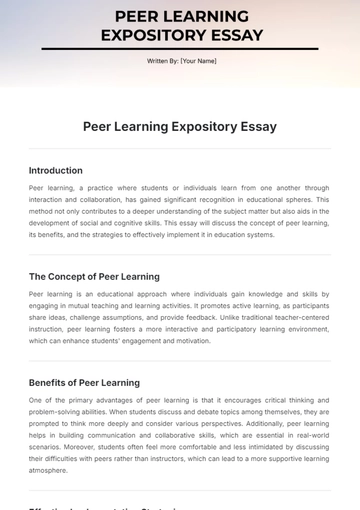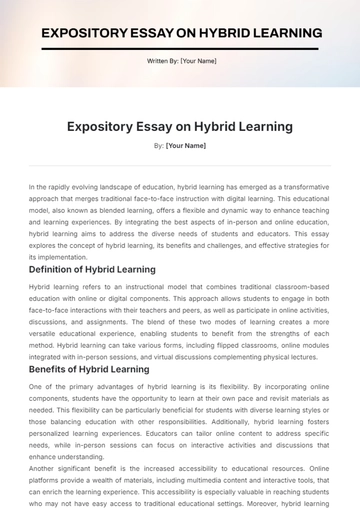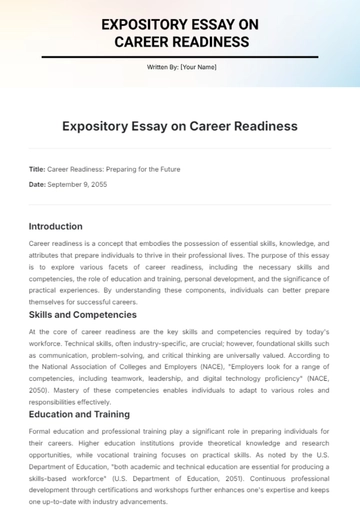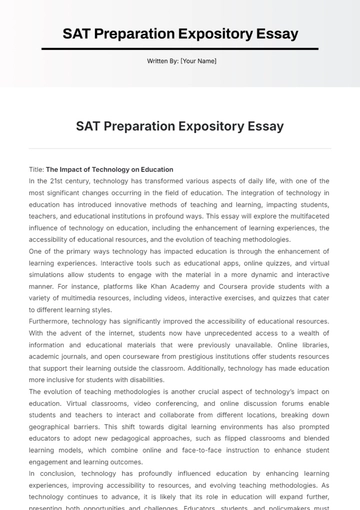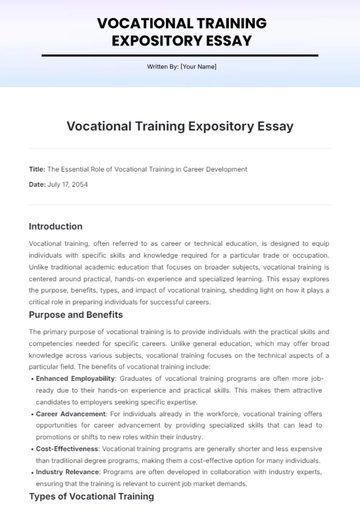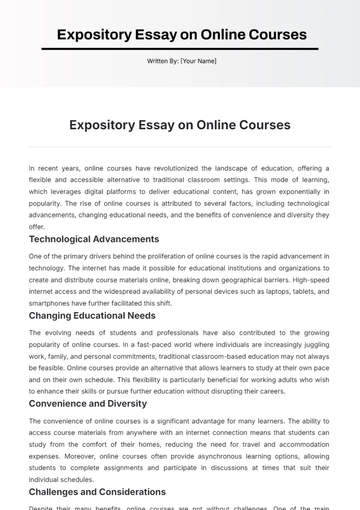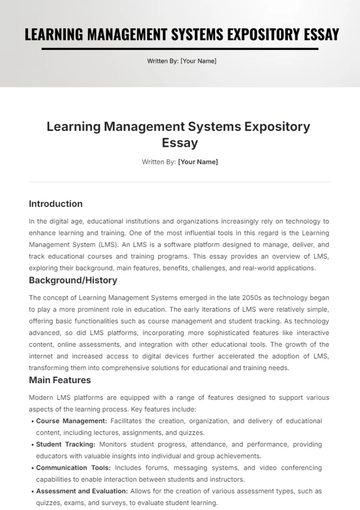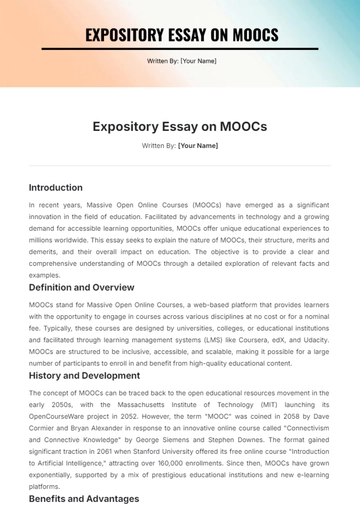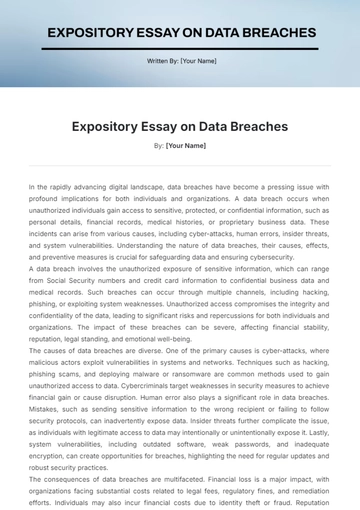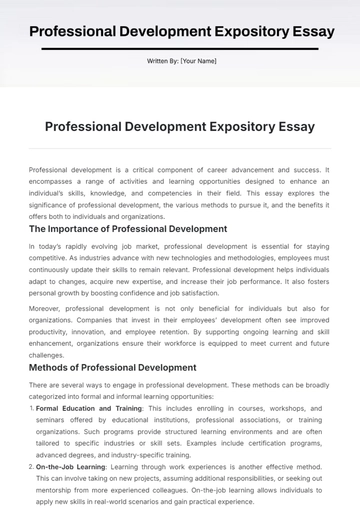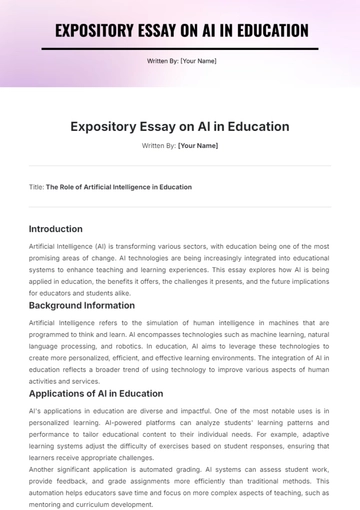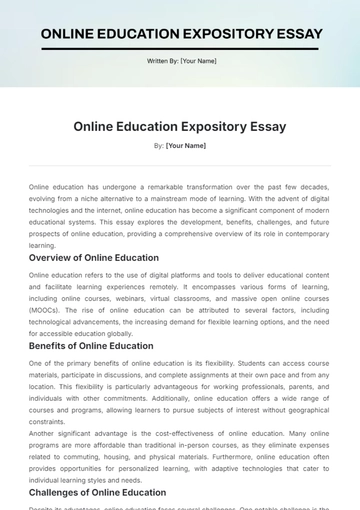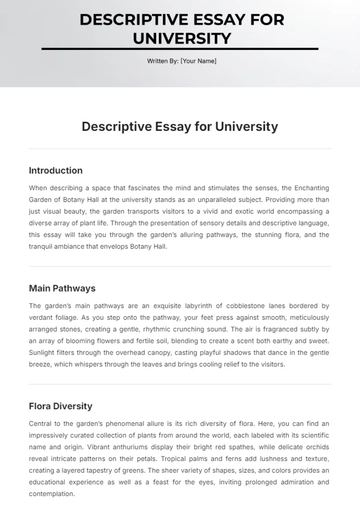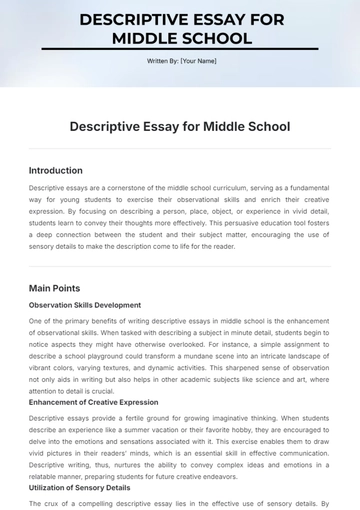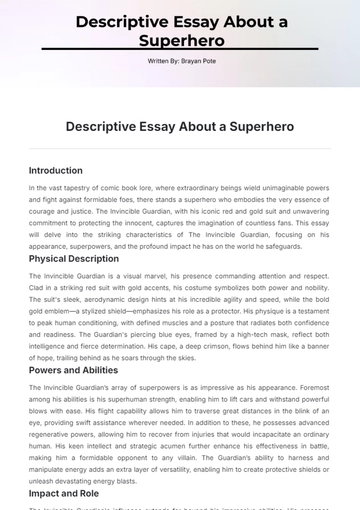Free Vocational Training Expository Essay
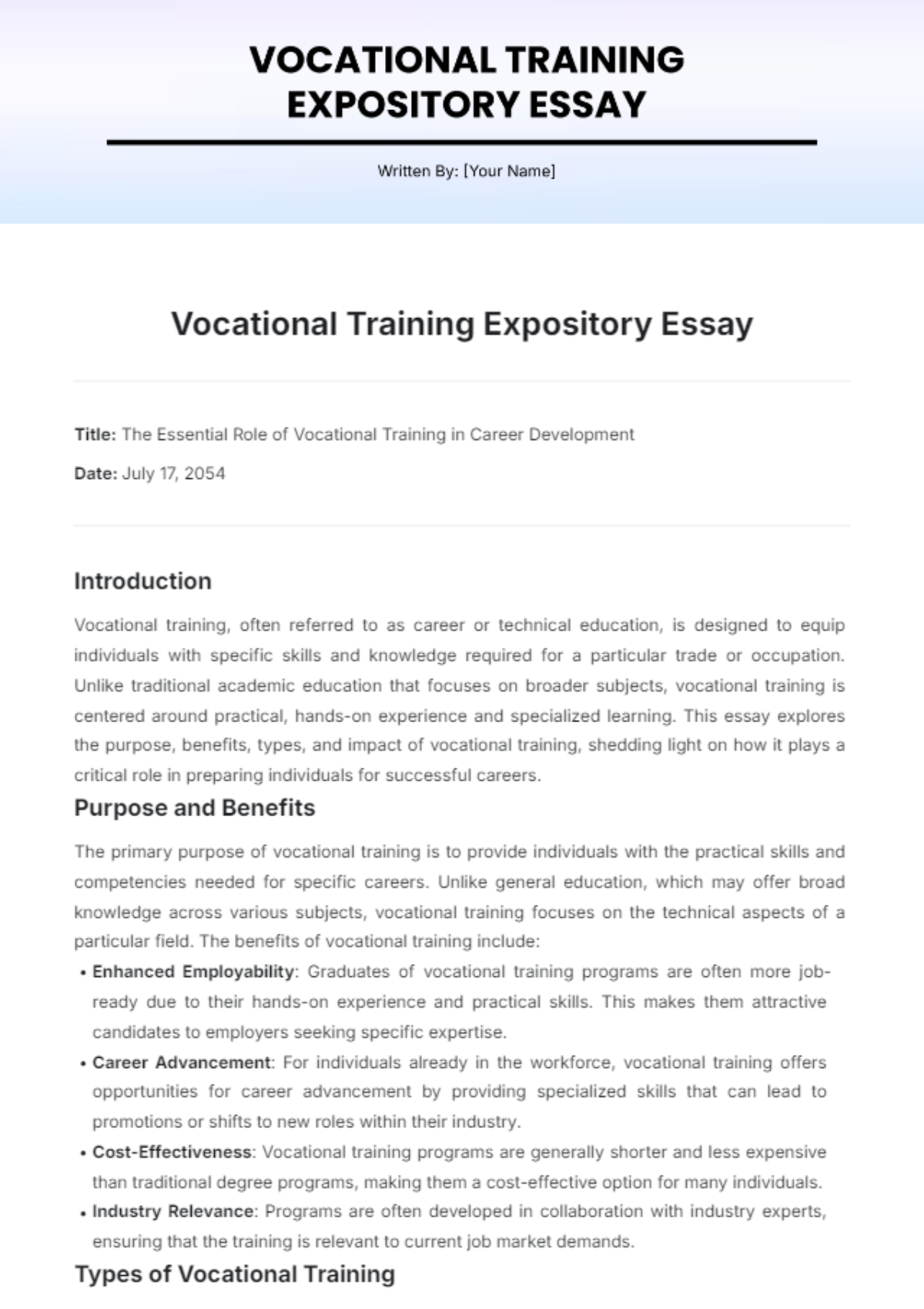
Title: The Essential Role of Vocational Training in Career Development
Date: July 17, 2054
Introduction
Vocational training, often referred to as career or technical education, is designed to equip individuals with specific skills and knowledge required for a particular trade or occupation. Unlike traditional academic education that focuses on broader subjects, vocational training is centered around practical, hands-on experience and specialized learning. This essay explores the purpose, benefits, types, and impact of vocational training, shedding light on how it plays a critical role in preparing individuals for successful careers.
Purpose and Benefits
The primary purpose of vocational training is to provide individuals with the practical skills and competencies needed for specific careers. Unlike general education, which may offer broad knowledge across various subjects, vocational training focuses on the technical aspects of a particular field. The benefits of vocational training include:
Enhanced Employability: Graduates of vocational training programs are often more job-ready due to their hands-on experience and practical skills. This makes them attractive candidates to employers seeking specific expertise.
Career Advancement: For individuals already in the workforce, vocational training offers opportunities for career advancement by providing specialized skills that can lead to promotions or shifts to new roles within their industry.
Cost-Effectiveness: Vocational training programs are generally shorter and less expensive than traditional degree programs, making them a cost-effective option for many individuals.
Industry Relevance: Programs are often developed in collaboration with industry experts, ensuring that the training is relevant to current job market demands.
Types of Vocational Training
Vocational training encompasses a wide range of programs, each tailored to different career paths. Common types include:
Apprenticeships: These combine on-the-job training with classroom instruction, allowing individuals to earn while they learn. Apprenticeships are common in trades such as plumbing, electrical work, and carpentry.
Technical Schools: Institutions that offer specialized programs in fields like information technology, automotive repair, and healthcare. These programs provide targeted training in specific technical skills.
Certification Programs: Short-term courses that offer certification in various professions, such as project management, digital marketing, or culinary arts. These programs focus on gaining specific competencies and credentials.
Workplace Training: Many employers offer internal training programs to enhance the skills of their employees. These programs are designed to meet the specific needs of the company and its workforce.
Training Process
The process of vocational training typically encompasses a series of crucial components that are fundamental to its structure and effectiveness, ensuring that participants acquire the necessary skills and knowledge required for their specific trade or occupation.
Curriculum: Designed to cover the essential skills and knowledge required for a particular occupation. The curriculum often includes both theoretical and practical elements.
Hands-On Experience: Practical training is a core component, allowing students to apply what they have learned in real-world scenarios. This can include internships, simulations, and practical exercises.
Assessment: Regular assessments and evaluations are conducted to ensure that students have acquired the necessary skills and competencies. This may include exams, practical tests, and performance reviews.
Certification: Upon successful completion of the program, individuals often receive a certification or diploma that validates their skills and qualifications.
Impact on Career Development
Providing Specialized Skills: Equipping individuals with specific skills that are directly applicable to their chosen career, enhancing their job performance and career prospects.
Improving Job Readiness: Offering a practical experience that prepares individuals for the workforce, reducing the gap between education and employment.
Facilitating Career Changes: Allowing individuals to switch careers by acquiring new skills and qualifications relevant to different industries.
Boosting Earning Potential: Often leading to higher-paying jobs and career advancement opportunities due to the specialized skills acquired.
Conclusion
Vocational training plays a crucial role in modern education and career development. By offering targeted, practical instruction in specific fields, it provides individuals with the skills needed to excel in their chosen careers. Its benefits, including enhanced employability, career advancement, and cost-effectiveness, make it a valuable alternative to traditional academic education. As industries continue to evolve, vocational training remains a vital component in preparing a skilled and adaptable workforce.
References
U.S. Department of Education. (2050). Office of Vocational and Adult Education.
World Bank Group. (2051). Vocational Education and Training.
- 100% Customizable, free editor
- Access 1 Million+ Templates, photo’s & graphics
- Download or share as a template
- Click and replace photos, graphics, text, backgrounds
- Resize, crop, AI write & more
- Access advanced editor
Template.net's Vocational Training Expository Essay Template is a versatile and editable tool perfect for writing about skills-based education. Fully customizable and editable in our AI Editor Tool, it offers an organized framework for discussing the importance of vocational training. Ideal for students, educators, or industry professionals, this template provides the flexibility to highlight the benefits of hands-on learning and career preparation.

